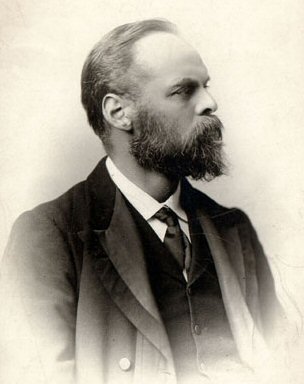Charles Usher on:
[Wikipedia]
[Google]
[Amazon]
 Charles Howard Usher (2 March 1865 – 3 March 1942) was a Scottish
Charles Howard Usher (2 March 1865 – 3 March 1942) was a Scottish
 Charles Howard Usher (2 March 1865 – 3 March 1942) was a Scottish
Charles Howard Usher (2 March 1865 – 3 March 1942) was a Scottish ophthalmologist
Ophthalmology ( ) is a surgery, surgical subspecialty within medicine that deals with the diagnosis and treatment of eye disorders.
An ophthalmologist is a physician who undergoes subspecialty training in medical and surgical eye care. Followin ...
from Edinburgh
Edinburgh ( ; gd, Dùn Èideann ) is the capital city of Scotland and one of its 32 Council areas of Scotland, council areas. Historically part of the county of Midlothian (interchangeably Edinburghshire before 1921), it is located in Lothian ...
. He studied medicine at St. Thomas Hospital in London
London is the capital and largest city of England and the United Kingdom, with a population of just under 9 million. It stands on the River Thames in south-east England at the head of a estuary down to the North Sea, and has been a majo ...
, and after receiving his doctorate in 1891, he remained at St. Thomas, working under Edward Nettleship
Edward Nettleship Fellow of the Royal Society, FRS Fellow of the Chemical Society, FCS (3 March 1845 – 30 October 1913) was an English ophthalmologist.
He was a native of Kettering. After finishing his medical studies at King's College London, ...
(1845–1913). Later he was an eye surgeon
In modern medicine, a surgeon is a medical professional who performs surgery. Although there are different traditions in different times and places, a modern surgeon usually is also a licensed physician or received the same medical training as ...
at the Aberdeen
Aberdeen (; sco, Aiberdeen ; gd, Obar Dheathain ; la, Aberdonia) is a city in North East Scotland, and is the third most populous city in the country. Aberdeen is one of Scotland's 32 local government council areas (as Aberdeen City), and ...
Hospital for Sick Children, and also worked in the Aberdeen Royal Infirmary
Aberdeen Royal Infirmary (ARI) is the largest hospital in the Grampian area, located on the Foresterhill site in Aberdeen, Scotland. ARI is a teaching hospital with around 900 inpatient beds, offering tertiary care for a population of over 600,00 ...
.
Usher is known for the eponymous Usher Syndrome
Usher syndrome, also known as Hallgren syndrome, Usher–Hallgren syndrome, retinitis pigmentosa–dysacusis syndrome or dystrophia retinae dysacusis syndrome, is a rare genetic disorder caused by a mutation in any one of at least 11 genes result ...
, which he described in a 1914 treatise titled ''On the inheritance of retinitis pigmentosa''. He based his findings on a survey of 69 individuals who suffered from visual problems associated with deafness
Deafness has varying definitions in cultural and medical contexts. In medical contexts, the meaning of deafness is hearing loss that precludes a person from understanding spoken language, an audiological condition. In this context it is written ...
. Usher demonstrated that the disease was inherited, and that parents passed the condition onto their children. His discovery was a continuation of the work done by German ophthalmologists Albrecht von Graefe Albrecht von Graefe may refer to:
* Albrecht von Graefe (ophthalmologist) (1828-1870), Prussian opthalmologist
* Albrecht von Graefe (politician)
Albrecht von Graefe (1 January 1868 – 18 April 1933) was a German landowner and right-wing ...
and Richard Liebreich
Richard Liebreich (30 June 1830 – 19 January 1917) was a German ophthalmologist and physiologist who was a native of Königsberg. He was of Jewish ancestry.
In 1853 he earned his doctorate at Halle, and from 1854 until 1862 was an assistant t ...
, who did extensive research of retinitis pigmentosa
Retinitis pigmentosa (RP) is a genetic disorder of the eyes that causes loss of vision. Symptoms include trouble seeing at night and decreasing peripheral vision (side and upper or lower visual field). As peripheral vision worsens, people may ...
and its link to deafness in the mid-19th century.
With Dr. Nettleship and Karl Pearson
Karl Pearson (; born Carl Pearson; 27 March 1857 – 27 April 1936) was an English mathematician and biostatistician. He has been credited with establishing the discipline of mathematical statistics. He founded the world's first university st ...
(1857–1936), Usher produced an important work on albinism
Albinism is the congenital absence of melanin in an animal or plant resulting in white hair, feathers, scales and skin and pink or blue eyes. Individuals with the condition are referred to as albino.
Varied use and interpretation of the term ...
called ''A Monograph on Albinism in Man''.
References
* ''This article is based on a translation of an article from the German Wikipedia.'' 1865 births 1942 deaths Medical doctors from Edinburgh British ophthalmologists 19th-century Scottish medical doctors 20th-century Scottish medical doctors {{Scotland-med-bio-stub